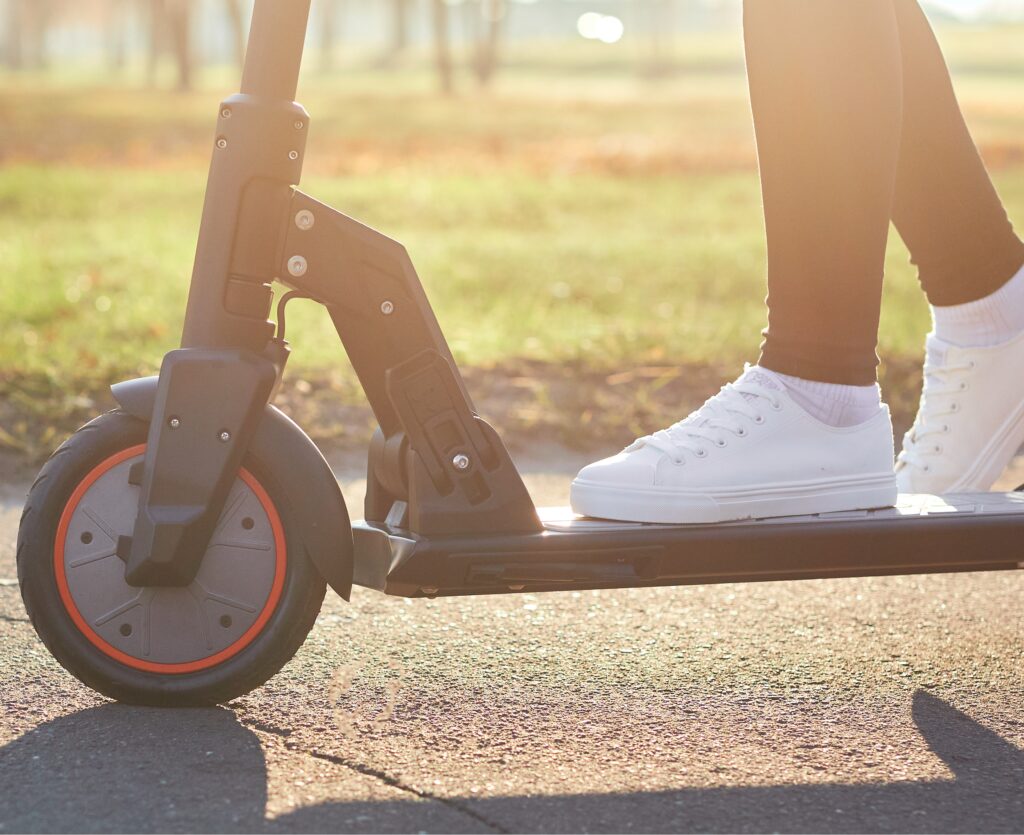Thursday 4th April 2024
In recent years there has been an increase in the number of electric powered bikes and scooters being purchased. Along with the number of publicly available e-bikes and e-scooters this has created concerns over fire safety. The reports of fires starting has increased, usually when the battery is being charged, raising a number of concerns of the quality of some of the bikes and scooters available to buy.
While in general the benefits are clear; speed of travel (compared to walking), convenience, reduced environmental impact compared to other modes (such as cars) and reduced transport costs. It is likely that in time, privately owned e-scooters would be legal to use on public highways and play a role in future urban transport. Therefore, it is important to make sure that the bike or scooter that you are buying is of good quality.

Things to consider before making a purchase
- Do your research, look online or in store to see which e-bikes and e-scooters have had good reviews and the ones that haven’t so you can make an informed choice on the best one to buy within your budget.
- Buy from a reputable retailer for all the components, including battery pack and charger.
- When purchasing replacements parts, ensure these are purchased from the same manufacturer.
- Register the product with the manufacturer – to be notified quickly of any safety issues or recalls.
- Be cautious if buying second-hand, refurbished or converted bikes. It can be hard to establish reliability, whether it is counterfeit or genuine, and whether they meet proper UK standards. Look for CE or UKCA marking.
Tips for safer charging of batteries
- Do not store or charge batteries in communal areas, especially if they form part of the escape route.
- If the battery is hot after use, allow it to cool before putting on charge.
- Do not overcharge the battery – check the manufacturer’s instructions.
- Do not cover chargers or battery packs when charging as this could lead to overheating and possibly fire.
- Keep batteries out of direct sunlight.
- Do not overload sockets or extension leads – ensure the extension lead is suitably rated for what you are using it for.
- Do not charge batteries overnight or while you are away from home. If a fire should start you will be alert and aware.
- Regularly check your batteries and chargers, and do not use them if there are any signs of damage; replace them immediately.
- If you regularly recharge batteries, or have several on charge at once, consider installing a Lithium-Ion Battery Containment Safe, or ask your landlord for one.
Warning signs of danger to look out for
- Heat – it is normal for batteries to generate some heat when charging or in use. If it feels extremely hot to the touch, stop charging straight away.
- Bulging or leaks – a common sign of a battery failing is bulging or swelling. If you see this you should stop using it immediately.
- Noise – failing lithium batteries can sometimes make hissing or cracking sounds.
- Smell – a strong or unusual smell from the battery could be a sign that it is failing.
